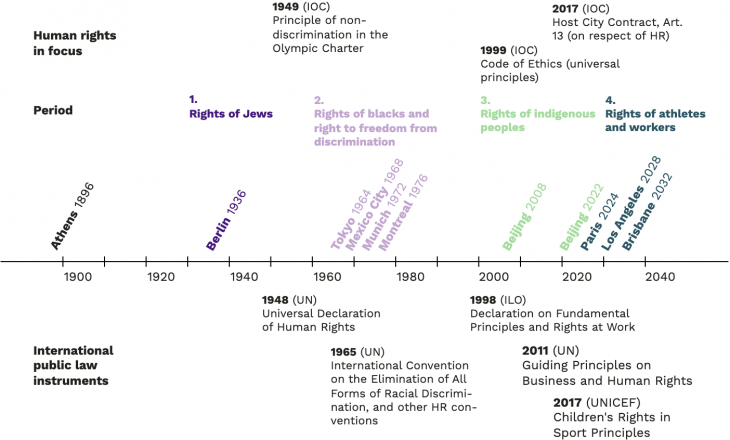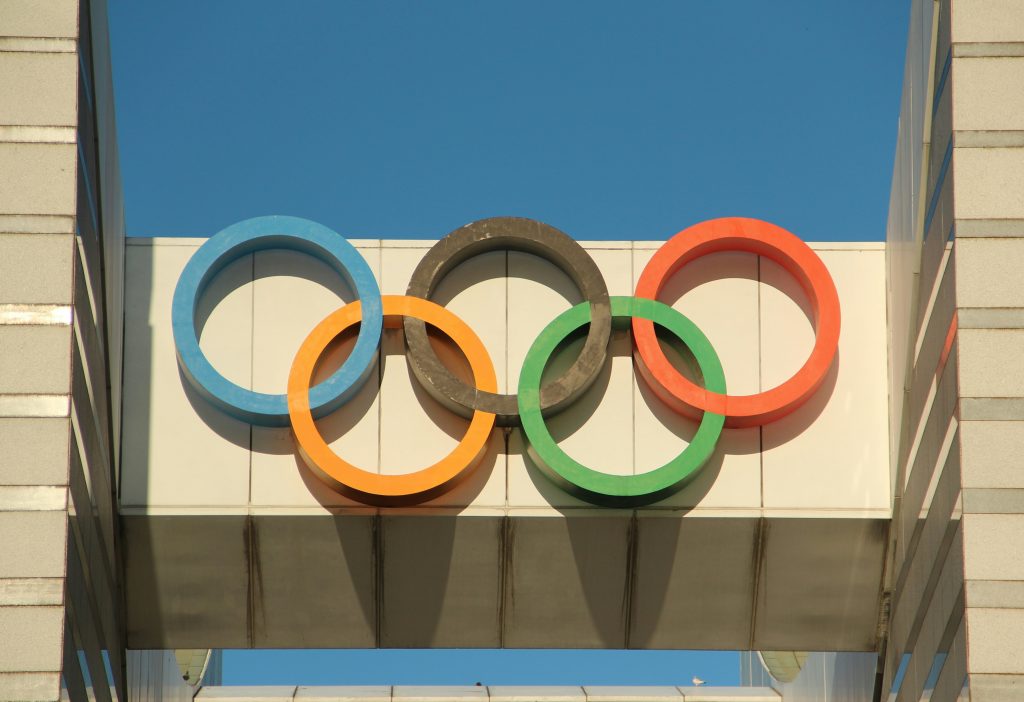A topical question
The FIFA World Cup that ended in Qatar in December 2022 raised many questions about human rights. The media, NGOs and the public in Western countries no longer easily accept the holding of mega-events in countries that violate human rights, and even the participation of countries whose record on the issue is not unblemished. The same goes for the summer and winter Olympic Games which, together with the World Cup, are most highly mediatized mega event.
The modern Olympic Games were first held in 1896, inspired by the hope that peace could grow out of better understanding between peoples created by sporting competitions. Today, according to American historian Barbara Keys (2019), this pacifist ambition has shifted its focus to the ideal of respect for human rights, a concept that has evolved greatly since it was enshrined in the Declaration of the Rights of Man and of the Citizen at the beginning of the French Revolution. The fact that the Olympics have been held regularly for more than a century lets us trace this evolution and situate the events of today in the framework of international public law.
A relationship that has evolved along with the concept of human rights
Researchers point to four moments (see Figure 1) when human rights came to the fore, keeping pace with the development of the concept over the years. First, the 1936 Berlin Olympics sparked calls for boycotts in the United States and Europe in response to the Nazi regime’s discrimination against German Jews. Following World War II, in 1948 the UN adopted the Universal Declaration of Human Rights, which was then given concrete expression by a whole series of conventions (treaties) between states. In 1960, the International Olympic Committee (IOC) banned apartheid South Africa, but the Games were also affected by other issues of racism incompatible with the Olympic ideal. In the 1960s and 1970s the Olympics were also affected by various boycotts or threatened boycotts by African countries and black athletes. This was the second moment. The third was that of the 2008 Beijing Summer Olympics and the 2022 Beijing Winter Olympics. These Games went ahead despite the repression of the Tibetan and Uyghur peoples that was compared to cultural genocide. The fourth and final moment concerns both the winter and summer Olympics from 2024 on. The IOC has awarded them respectively to Paris (2024), Milan (2026), Los Angeles (2028) and Brisbane (2032), in countries where the human rights previously mentioned should not cause issues. But new rights are being demanded, particularly by athletes, regarding their sharing in the Games’ economic benefits and their freedom of expression (as during the Qatar FIFA World Cup and UEFA Euro 2020).
Figure 1 | Four moments in the relationship between the Olympics and human rights.

Figure: Alix d’Agostino, DeFacto
Implications for decision-makers
2011 marked an important turning point with the UN’s adoption of its Guiding Principles on Business and Human Rights. From then on, respect of human rights was no longer a matter for states but also for businesses, among them the major governing bodies of world sport, such as FIFA and the IOC. These organizations now refer to these principles in their constitutions and amend their contracts accordingly. These principles of corporate responsibility were minimally taken up by Swiss legislation (an indirect counter-proposal by the Federal Council further to a 2020 vote that was accepted by the people, but not by the cantons) and will doubtless need to be strengthened in view of the ad-hoc European regulation currently being adopted.
Note: This article was published as part of IDHEAP Policy Brief No. 7.
References:
Chappelet J.-L. (2022). The Olympics’ evolving relationship with human rights: An ongoing affair. Sport in Society 25(1), 1-22.
Keys, Barbara J. (2019). The Ideals of Global Sport: From Peace to Human Rights. Philadelphia, University of Pennsylvania Press.
image: unsplash.com






